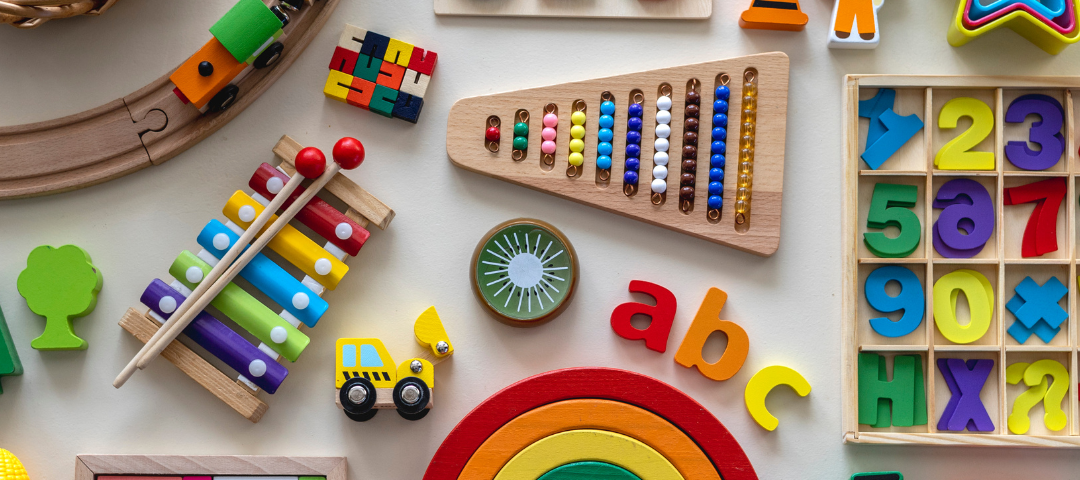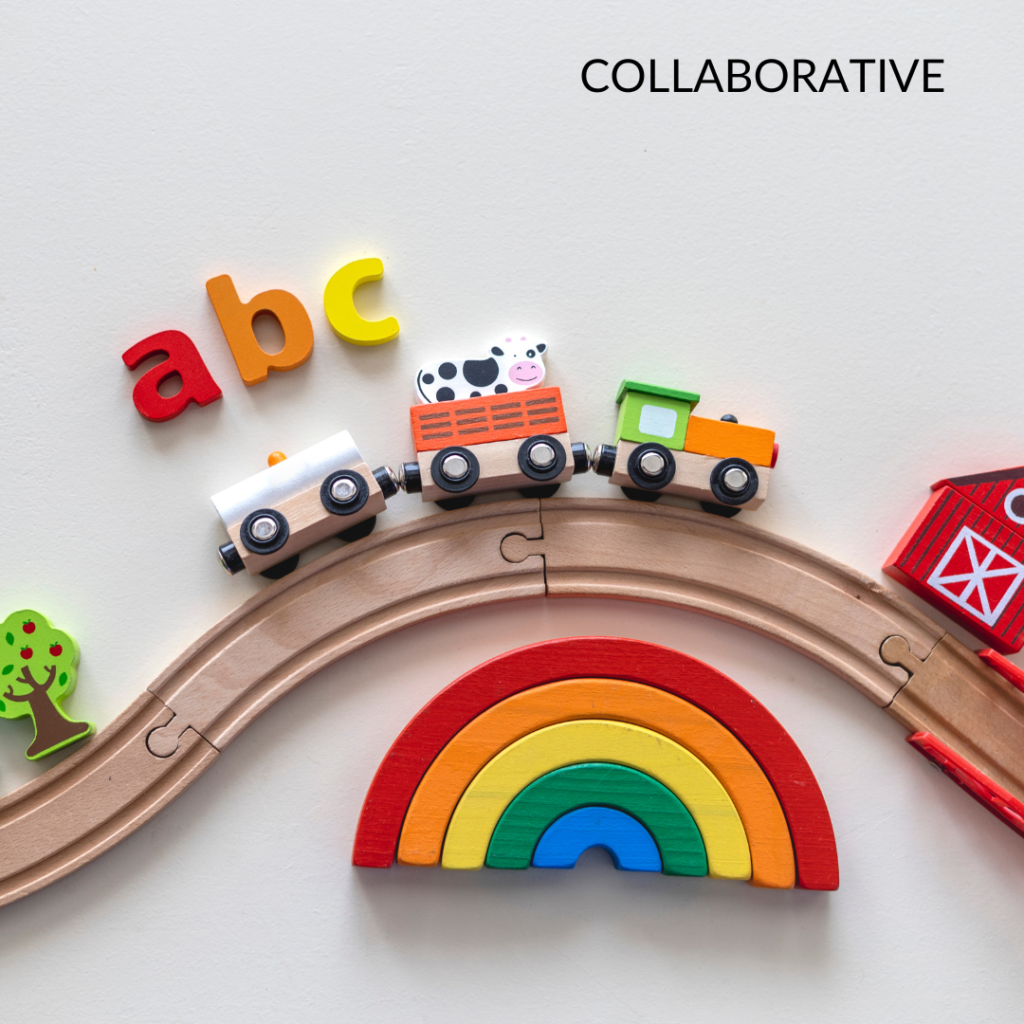This website uses cookies so that we can provide you with the best user experience possible. Cookie information is stored in your browser and performs functions such as recognising you when you return to our website and helping our team to understand which sections of the website you find most interesting and useful.

Elevating Your Computer Experience: 5 Strategies for Optimal Well-Being
2nd May 2024
Supplementing Your Income Safely: Keeping Your Side Hustle Legal
8th May 202412 Toys Every Child Should Have to Help Their Development

If you want your child to have every advantage in life; if you want them to grow up happy, strong and healthy, then you will probably spend a lot of time feeding them a healthy diet, reading to them and asking them out to run around in the fresh air. All of that stuff is undoubtedly important, but you might be surprised that there is another ingredient to a well-rounded child – toys! Yes, really. Toys might be for fun but they can also be great for physically and mental development too!

That being the case, below, we are going to take a look at some of the toys every child should have in the playroom if you want to give them the best possible start in life, which as a parent, you undoubtedly do!
1. Building Blocks
Building blocks really are the building blocks of so much child development, so they are a must.
Types of Blocks: Wooden blocks, magnetic blocks, and interlocking plastic blocks. Each type has its own charm, but they all share one superpower: turning your child into a mini architect.
Benefits: There’s a reason why building blocks have been a staple in children’s toy boxes for generations. You see, they are more than just toys; they are quite literally tools that your children can use to build their fine motor skills and increase their creativity levels. Every block they stack will help them to gain better control of their body and mind, and when your child is creative and dextrous life will open so many more doors to them, and school will be a breeze, right?
2. Plushies
Plushies may be cute companions for every kid, but they can also help your kids to develop socially and emotionally too, which is why every kid needs a favourite one.
Types of Plush Toys: From teddy bears to stuffed dinosaurs, plushies come in all shapes and sizes, representing animals and cartoon characters.
Benefits: Ever noticed how a child confides in a plush toy like it’s their bestest friend ever? That’s because plushies are more than just soft and squishy bundles of cuteness; they are confidants and companions. They play a crucial role in social and emotional development, helping children practice empathy and nurturing skills through role-playing. Plus, in times of distress, a beloved plush toy can be a source of immense comfort, proving that sometimes, the best therapist has fur and stuffing.
3. Puzzle Games
Puzzle games provide fun and stimulation, so be sure to stock up on a few!
Types of Puzzles: Jigsaw puzzles suited to various age levels, brain teasers, and 3D puzzles that challenge spatial reasoning.
Benefits: If you want to raise a child who is as clever as they are beautiful to you, then you need to invest in a puzzle game or two for their toybox. Why? Quite simply because they improve cognitive skills, enhance hand-eye coordination, and foster problem-solving skills all in one small package. Starting from simple wooden knob puzzles to intricate 1000-piece landscapes, puzzles grow with your child, offering increasing levels of difficulty. As children figure out where each piece fits, they learn patience and are rewarded with the joy of every small victory when a piece fits correctly.
4. Art Supplies
Creativity plays a key part in the happiness and development of children, so don’t leave it out.
Must-Have Items: Get those crayons, markers, paints, and clays ready.
Benefits: Creativity is great for kids. It allows their imaginations to run wild and shows them exactly what they may be capable of. So, it is fair to say that art supplies are more than simple tools; they let your kids show their emotions, express their ideas, and boost their refine motor skills. They also offer a soothing meditative experience which can be good for hyper kids who may find it hard to focus,
5. Musical Instruments
Learning to play a musical instrument develops a whole range of skills in kids, and can be so rewarding, so let your child explore them.
Kid-Friendly Instruments: Consider ukuleles, keyboards, or simple percussion instruments like tambourines and maracas.
Benefits: Introducing musical instruments at an early age isn’t just about noise control for parents—it’s about cultivating a sense of rhythm and coordination in children. Playing music helps develop auditory skills, enhances mathematical ability through rhythm recognition, and teaches patience and discipline as they learn to master new sounds. It’s also a fantastic way for children to express themselves emotionally and connect with others through shared musical experiences.
6. Role-Play Costumes
Role play aids every child’s development, which is why a dress-up box is so vital.
Examples of Costumes: Whether it’s dressing up as a doctor, astronaut, or chef, the possibilities are endless and as varied as a child’s imagination.
Benefits: Role-play isn’t just adorable photo opportunities; it’s a critical component of developmental play. By stepping into different roles, children explore complex social interactions, learn problem-solving skills, and develop empathy. These activities also enhance language skills as children negotiate roles, follow scripted stories, and invent dialogues. It’s a powerful way for children to understand the world around them and their potential impact on it.
7. Sports Equipment
Kids need to be active to be healthy, right?
Essential Gear: Items like balls, mini hoops, and plastic bats are perfect for little hands and feet.
Benefits: Physical play is vital for the healthy development of children. Engaging in sports not only helps develop their motor skills but also teaches important life skills like teamwork, leadership, and perseverance. It encourages healthy competition and provides a natural way for kids to release energy and stress. Moreover, it instills a habit of physical fitness from an early age, setting the stage for a healthy lifestyle.
Now, let’s shift gears and consider the intriguing world of science kits and the timeless appeal of board games, which not only entertain but educate.
8. Science Kits
Want to get your kids on the STEM train early? Science kits are your best friend.
Types of Kits: Options range from chemistry sets to physics experiments and biology kits that might include dissecting a frog or growing crystals.
Benefits: Science kits feed curiosity and foster a scientific mindset. They transform abstract concepts into tangible, hands-on experiments that captivate the imagination. For a child, turning kitchen ingredients into a volcano or creating slime can be magical. These kits also teach critical thinking, enhance analytical skills, and can spark a lifelong interest in science and technology.
9. Board Games
Fun for all the family, board games have so many benefits for your little ones.
Types of Games: From strategy-focused games to classics like chess and educational games that reinforce skills such as spelling and math.
Benefits: Board games are far from boring—they’re brain-boosting! They encourage strategic thinking, problem-solving, and can significantly improve cognitive abilities. They also teach valuable social skills such as taking turns, playing fair, and handling defeat gracefully. Moreover, board games are a great way for families to bond and engage in meaningful dialogue away from screens.
10. Technological Toys
Tech doesn’t always have to be the bad guy!
Examples: Programmable robots and tablets equipped with educational apps are at the forefront of combining learning with play in the tech arena.
Benefits: Tech-based toys do not have to be the thing that keeps your kids mindlessly glued to the screen – they can be fun tools that teach the little ones the basics of coding and programming, essential skills for the digital age. For example, a child programming a small robot to navigate through a maze learns logical thinking, problem-solving, and the basics of software engineering. Tablets with educational apps can tailor learning to the child’s pace, making it an excellent tool for custom education.
But it’s not just about the individual skills these toys teach. They also help children become comfortable with technology, ensuring they’re not left behind in an increasingly tech-focused world. Moreover, tech toys often require critical thinking and can significantly enhance a child’s capacity for complex thought.
11. Toys That Grow with the Child
Toys they can keep forever are so precious, right?
Examples: Adjustable sports equipment, multi-stage educational toys.
Benefits: Investing in toys that adapt as a child grows can be a wonderful way to provide long-term engagement and learning. For instance, a basketball hoop that adjusts in height as children grow, or a multi-stage educational game that offers more complex challenges at each developmental stage. These toys offer excellent value for money and ensure that children continue to be challenged and engaged over the years.
Conclusion
As you can see, choosing toys for your children is about more than just buying things that will help to keep them entertained – it is about choosing toys that will help them to develop physically and mentally, which is why a toy shopping trip is a lot more important than you might ever have imagined! The good news is, now you have a good idea of which toys will truly do good things for your kids, so you can make sure you always make the right choices…well most of the time anyway because every kid deserves to have some toys just because, right?


